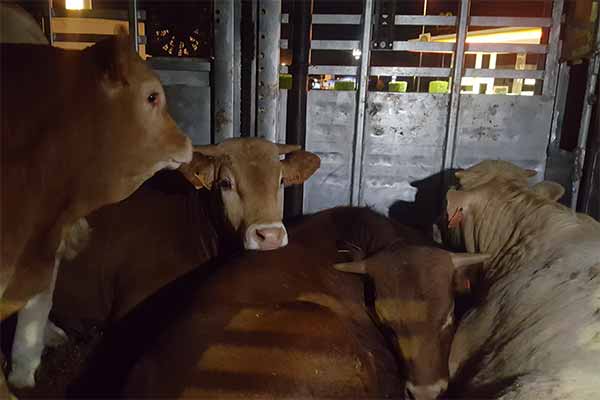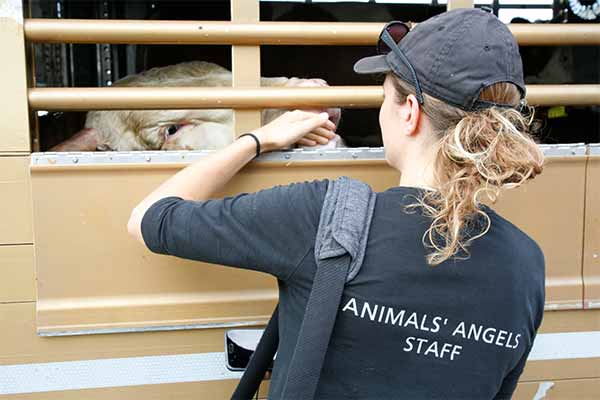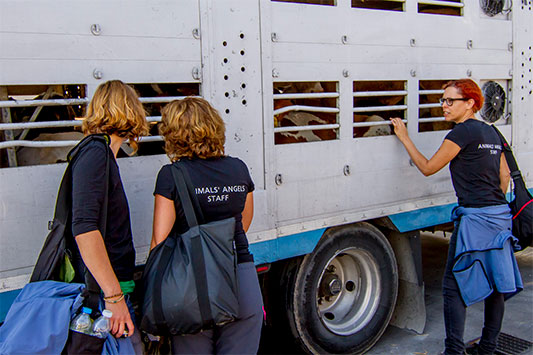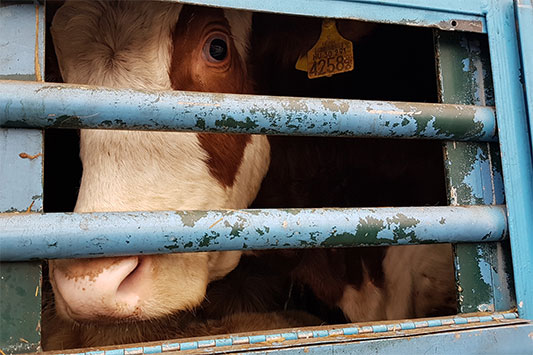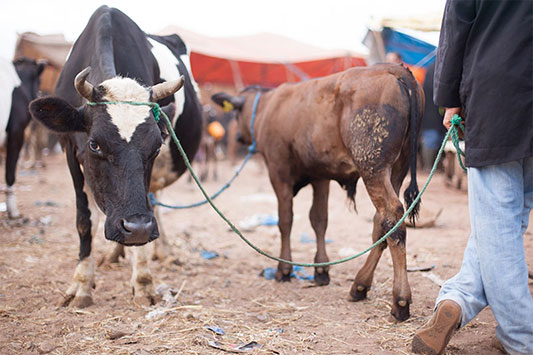Animals' Angels follows an animal transport in Morocco with bull calves from Spain. We initially met them in Spain on the way to the ferry port in Algeciras. On the Moroccan side we wait the following day with them at the port of Tanger-Med until all customs matters and papers have been cleared.
Almost five hours the truck with the animals on board stands beside the veterinary and customs office in the port area. Fortunately, it is not particularly hot today, as there are no shady places for animal transporters here.
In the early evening the transport starts towards Casablanca. We follow and can finally have a closer look at the young bulls. The eyes of tired and exhausted animal children look back at us. Some of the calves are standing crowded together. It seems that not all of them have enough room to lie down and rest at the same time – on a bedding that is soaked and dirty from urine and excrement anyway. A strong ammonia smell comes out of the truck.
We wonder how long the animals have been on the road – and when was the last time they were able to eat and drink properly? On the truck the calves are loaded on two levels, also in the front of the gooseneck. There's no more room left to carry hay.
When the truck arrives at its destination late in the evening, our observations show that the allowed 29-hour transport time has been exceeded. We are not allowed to see the unloading of the animals and the farm – we would first need an official permit for hygiene and health reasons, as all imported animals in Morocco must first undergo a 15-day quarantine. With a heavy heart we let them go – Andrés, Sandro and the other 58 animal children.
What happens to them now? According to the buyer, they will be fattened for about six months before being slaughtered without stunning and under terrible conditions. We will, of course, lodge a complaint with the competent authorities and keep up the pressure at national and EU level to put an end to these irresponsible export transports.






